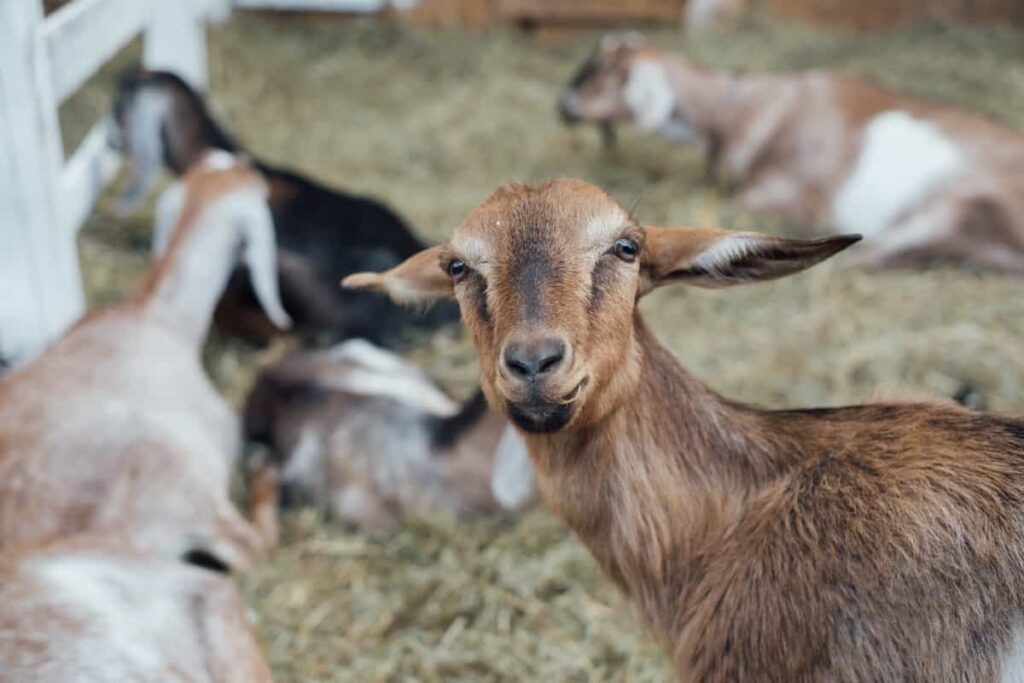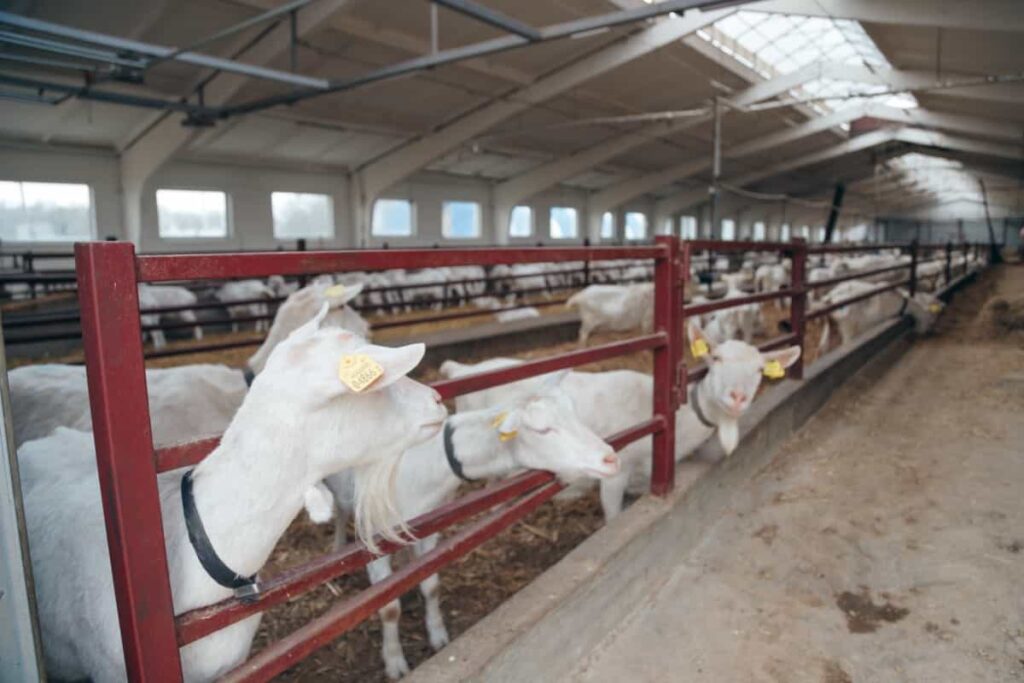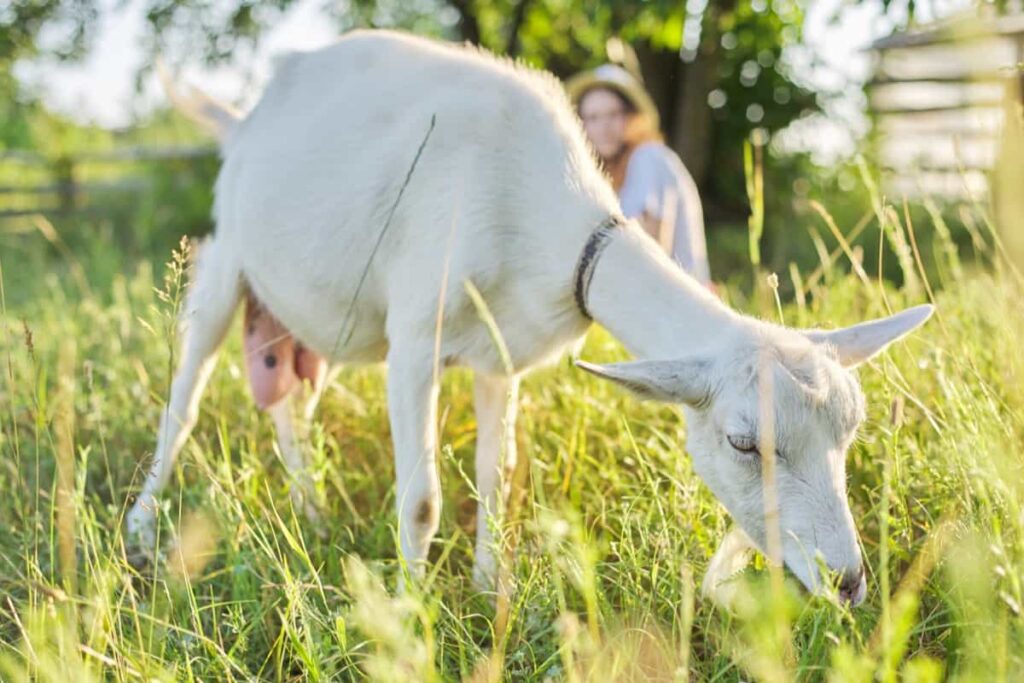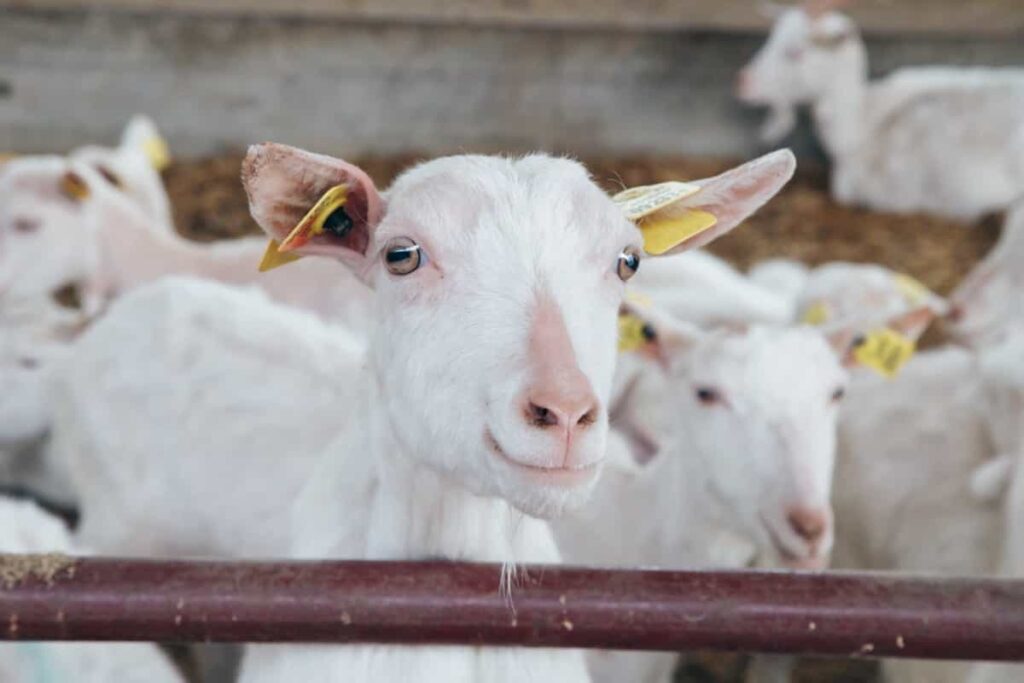Goat kidding season is a crucial time for goat producers, as it sets the foundation for the success and growth of their herds. This period, characterized by the birth of baby goats or kids, plays a vital role in maintaining the health and productivity of the entire herd. Timing determines when the goat kidding season begins on your farm. Moreover, goat kidding season helps ensure genetic diversity within the herd.

How to Prepare Yourself for Goat Kidding Season
Understanding the Goat Kidding Season
Goat kidding season is a unique and exciting time for goat producers. During this period, goats give birth to their adorable little ones, known as kids. As goat owners, it’s crucial to be prepared before kidding season arrives. This involves creating a safe environment for mother goats and newborns. Providing clean bedding, ample space, and adequate shelter will contribute greatly towards a successful kidding experience.
Essential Preparations for Goat Kidding Season
Ensure you have enough dry bedding material like straw or wood shavings. It’s also a good idea to have a designated kidding pen where the does can give birth in peace and privacy. This area should be well-ventilated and free from drafts. Next, stock up on necessary medical supplies. Have a birthing kit ready with gloves, lubricant, disinfectant solution, towels, and scissors if needed.
You may also want to consult with your veterinarian about having certain medications in emergencies. In addition to physical preparations, educating yourself about the signs of labor in goats is crucial. Furthermore, establishing a solid nutritional plan is vital during this time. Feed pregnant does a balanced diet rich in minerals and vitamins specific to their needs. Ensure they have access to fresh water, as hydration plays a significant role in successful kidding.
Ensuring a Successful Goat Kidding Season
It’s important to provide your pregnant goats with proper nutrition. A diet rich in high-quality hay, minerals, and freshwater will help support healthy pregnancies and strong kids. Additionally, consider offering supplemental grain or pellets specifically formulated for pregnant goats. Regular health management is crucial as well. Schedule routine vaccinations and deworming treatments before the breeding season begins. Ensure that the kidding area is clean, dry, and well-ventilated.
In case you missed it: Goat Kids Care and Management: A Comprehensive Guide

Once the kids are born, caring for them appropriately is crucial. Ensure they receive colostrum from their mother within the first few hours of life to obtain vital antibodies that boost their immune system. Always consult with an experienced veterinarian when needed. They can guide you on specific issues related to goat reproduction and offer advice tailored to your herd’s needs.
Creating a Safe and Comfortable Environment for Goat Kidding
First and foremost is the shelter where the goats will give birth. It should be clean, well-ventilated, and free from drafts. Providing ample space for each goat ensures they have room to move around comfortably during labor. Another important aspect of making a comfortable environment is removing all potential hazards from the birthing area. This includes sharp objects, loose wires, and poisonous plants that could harm the mother goat and her newborn kids.
Maintaining good hygiene practices prevents infections or diseases during goat kidding season. Regularly cleaning and disinfecting equipment such as buckets, feeders, and water troughs help minimize any risk of contamination. A calm atmosphere can greatly reduce stress levels for the goats and their handlers during the kidding season.
Nutrition and Health Management for Pregnant Goats During Kidding Season
Providing proper nutrition to your pregnant ensures the well-being of the mother and her developing kids. During this critical time, it is crucial to offer a balanced diet that meets all their nutritional needs. High-quality hay, preferably legume-based, should be available at all times.
It’s important to monitor body condition closely throughout pregnancy. Adjusting feed amounts accordingly can prevent issues like ketosis or pregnancy toxemia. Regularly weigh your goats to track weight gain and adjust feeding as needed. Maintaining good herd health is equally vital during kidding season.
Recognizing Signs of Labor in Goats
The first sign that a goat may be going into labor is restlessness. Doe may also separate herself from the herd and seek a private area. Another sign to look out for is udder development. As the kidding season approaches, you will notice that your doe’s udder becomes larger and firmer. This indicates that her body is preparing to produce milk for her kids.
In case you missed it: How to Use Pumpkin Seeds as a Natural Dewormer for Goats

Assisting with Goat Births
It’s important to have a clear understanding of normal labor in goats. This includes knowing the average duration of each stage and recognizing any signs of distress or complications. Providing a calm and quiet environment for the mother goat during birthing is essential. As a caretaker, your role during kidding is primarily observational. However, if you need to intervene, ensure your hands are clean and sanitized before touching anything. Gentle handling is key to avoid causing harm or excessive pain to the doe and her kids.
Caring for Newborn Kids
Caring for newborn kids is a crucial aspect of goat kidding season. These little bundles of joy need special attention to bacterial or viral infection to ensure their health and well-being. Creating a warm and clean environment for the newborn kids is important. Please provide them with a draft-free shelter where they can stay comfortably with their mother.
Please ensure the bedding is clean, dry, and free from sharp objects that could harm them. Feeding is another essential aspect of caring for newborn goat kids. They should receive colostrum within the first few hours after birth. This rich milk contains vital antibodies that help boost their immune system. Regular monitoring of the kid’s health is also important during this period.
Preventing and Managing Common Health Issues in Goat Kids
Preventing and managing common health issues in goat kids is crucial for their well-being and growth. By taking proactive measures, you can ensure your newborns have the best chance at a healthy life. The main health concern in goat kids is diarrhea. Factors like bacterial or viral infections, poor nutrition, or stress can cause this condition. To prevent diarrhea, it’s important to provide clean and dry bedding for the kids, maintain proper hygiene practices, and feed them a balanced diet.
Another common issue is respiratory infections. These can be caused by exposure to cold drafts or damp environments. To prevent respiratory problems, ensure the kidding area is well-ventilated but free from excessive drafts. Additionally, monitor the humidity levels and provide appropriate bedding materials to keep the kids warm and dry. Consult with a veterinarian to determine your goats’ most suitable deworming schedule.
Post-Kidding Season Care
The main aspect of post-kidding care is ensuring proper nutrition for the lactating does. They require a diet rich in high-quality hay, fresh water, and a balanced feed specifically formulated for nursing mothers. This will help them produce ample milk for their growing kids while maintaining their health. It’s also important to gradually reintroduce exercise for the does after kidding season.
Please encourage them to move around freely but avoid excessive stress or strain on their bodies. This will help with muscle recovery and prevent obesity or joint problems. Continue practicing good biosecurity measures during this period. Maintain cleanliness in barns or shelters where goats are housed and regularly disinfect equipment used during kidding season. Post-kidding season care ensures optimal health and development for both does and kids.
In case you missed it: 10 Common Mistakes to Avoid in Goat Farming: A Guide for First-Time Goat Farmers

Frequently Asked Questions on Goat Kidding Season
When Does Goat Kidding Season Typically Occur?
Goat kidding season usually occurs during spring, but it can change depending on your geographical location and breed of goats. It’s important to watch for signs of impending labor, such as a swollen udder and restlessness.
What Supplies Do I Need on Hand During Kidding Season?
Having essential supplies readily available will help ensure a smooth delivery process. Some items include clean towels or rags for drying off newborns and iodine solution for disinfecting navels if intervention becomes necessary.
What Should I Do Before the Kidding Season Starts?
Before the kidding season arrives, ensure you have all the necessary supplies, such as clean bedding, heat lamps, extra feed for nursing moms, and medical supplies like iodine solution and obstetrical gloves.
Do I Need a Separate Area for Kidding?
Yes. Creating a clean and comfortable space specifically for kidding is crucial. This area should be well-ventilated but draft-free, with soft bedding such as straw or hay where the newborn kids can safely lie down.
Conclusion
Kidding season is a very exciting time for goat producers. The main aspect of goat kidding season is ensuring that each doe receives proper care during pregnancy. Producers can help ensure healthy offspring and reduce the risk of complications during labor by providing adequate nutrition and healthcare throughout gestation.
- Goat Feed Options for Weight Gain
- Types of Grass Growing for Goat Farm
- How to Train Goats for Milking: A Beginners Guide
- Goat Milking Practices and Equipment: A Beginner’s Guide
- Goat Farming for Fiber: Producing Mohair and Cashmere
- Maximizing Goat Milk Production: Tips for Dairy Goat Farmers
- Goat Farming as a Family Business: Strategies for Success
- Profitable Kenya Goat Breeds for Commercial Dairy and Meat Business
- Unlock the Secrets of Oberhasli Goat: Discover Raising and Management Practices